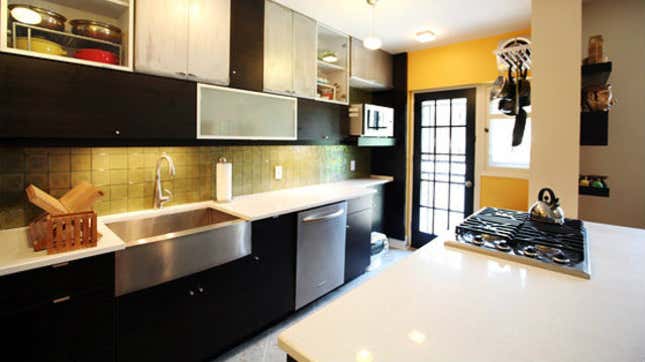
Airbnb is flying high. Today comes the news that the company might be valued at $2.5 billion. The number of nights booked through the online subletting service soared to 10 million by June 2012, five times what it was a year earlier.
But as the site’s popularity has grown so, too, have the risks. Forget the meth addict who trashed one San Francisco apartment. That’s an extreme example.
Rather, the rocky road Airbnb faces now is something that most other American companies are celebrating: the economic recovery.
It is no coincidence that Airbnb came of age during the worst recession the US has seen in a generation. In fact, co-founders Brian Chesky and Joe Gebbia started the site in October 2007, two months before the Great Recession began. A conference was coming to town, hotel rooms were sold out and the two put up a part of their San Francisco loft for rent. And so a company was born, a poster child for the “sharing economy” movement.
Over the next few years, though, Airbnb also became the go-to site for hosts and guests who shared something else in common: desperation and underemployment. In New York City, where I live, hipsters and freelancers started renting out their bedrooms and sleeping on the couch. Why? So they could pay the rent.
And who are the people who sublet from them?
Often hipsters and freelancers.
Here’s why: The housing crisis led the US into the recession. A wave of foreclosures wreaked havoc on people’s credit, which made it hard for them to not only buy another house but also just to rent one. Then came rampant unemployment. Tougher lending standards meant that if you hadn’t been in a job for two years continuously, you couldn’t get a loan. That forced an awful lot of people to rent. But they often couldn’t find another job right away. So they took what they could get: part-time work, contract jobs, temporary staffing.
Landlords hate those types as tenants. But these people still needed a place to live.
Their options were limited: Live with Mom and Dad (if they’re nearby). Rent a room or a basement apartment (if it’s affordable). Sleep on a friend’s couch (gets old quick).
Enter Airbnb. It became a part of the very gray real-estate economy of the last five years. Airbnb has even mentioned this in its advocacy of its business model, one that has roiled the hotel industry (more on that later). During a conference, Chesky praised his invention for helping “thousands” of homeowners avoid foreclosure. The company’s own survey found that almost half of New York hosts rely on Airbnb income “to make ends meet,” spending 80% of it on their own living expenses and other bills.
But now the foreclosure crisis is over and housing is recovering. Jobs are being created again. Federal Reserve Chairman Ben Bernanke has pledged to keep rates low until at least 2015, in a move that all but forces Americans to get back to seeing their home as an investment vehicle.
Even victims of foreclosure are in the housing market again, dubbed “boomerang buyers.” An Oct. 17 client note from Morgan Stanley referred to “cyclical improvement” in the household formation rate—literally the rate of housing keeping up with the vicissitudes like graduations and new jobs, marriages and new babies.
What does all this mean for Airbnb?
It means people like my freelancer friends who once slept in my guest room (for free) so they could rent out their homes are finding steadier work to pay their rent. It means people have something to fill out on the “employer” line of a rental application.
It means people don’t have to settle for Airbnb like they used to. And that leaves the company’s growth in the hands of a much tougher business: hotel.
To many, that’s what Airbnb has been all along. But without a customer base of desperate hosts and boarders, it is left with homes that are actively being rented out on a nightly basis, for tourists with actual expectations of comfortable beds and high thread counts, or maybe just no roaches or mice. Earlier this month perhaps in a nod to this reality, I received a survey from Airbnb, along with all other New York City hosts asking for the best local eateries, bars and tourists spots, a crowdsourced concierge.
Hotels—the real kind, with licenses and front desks, tiny shampoo bottles and fluffy pillows galore—don’t look on this kindly. The Hotel Association of New York City is trying to fight Airbnb’s expansion by saying its rentals are not subject to fire code.
Landlords too are lining up. At least two of my acquaintances have been evicted due to Airbnb sublets. It’s apparently growing common. For its part, Airbnb tells hosts to ensure their leases allow subletting. Everyone knows that’s rare.
The company, for its part, is taking the legal challenges seriously. This week, the company lured away Yahoo’s deputy general counsel, David Hantman. He’s clearly girding for battle, saying in his farewell note: “…my job will be to help [Airbnb] convince governments that allowing people to rent out their own homes or apartments should not be a problem.”
The investors seem to need little convincing, ever pumping cash into Airbnb, impressed with the margins on the site’s average 10% transaction fee. Understandably, they don’t see the iceberg coming—because if they have hundreds of millions of dollars to invest in this company, they can afford a hotel.